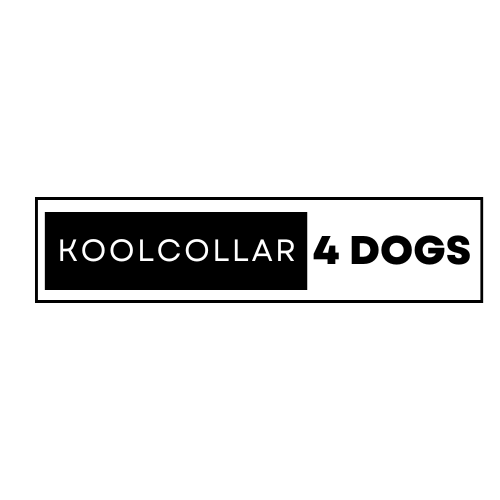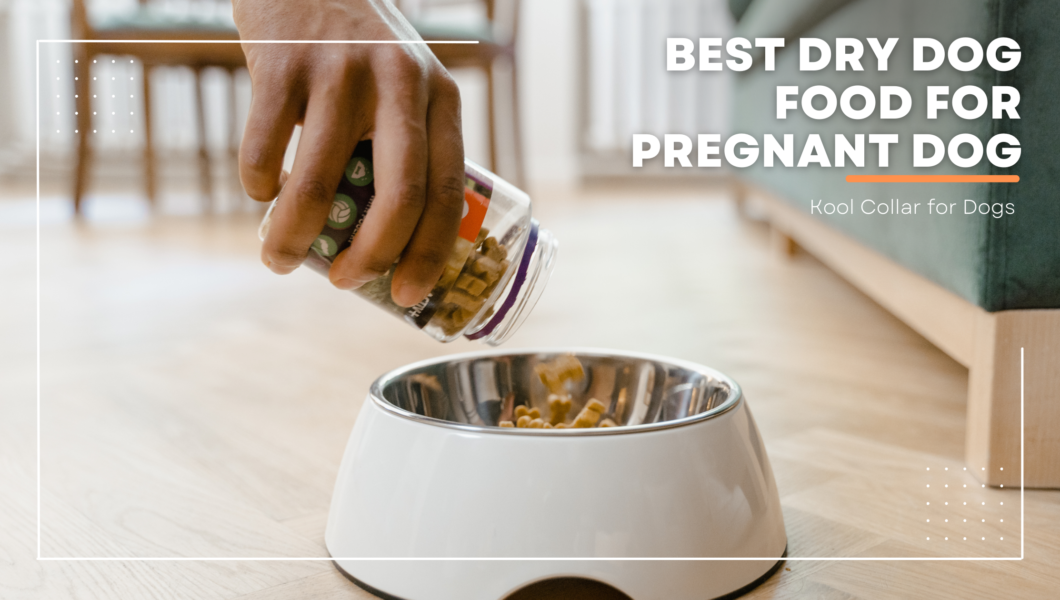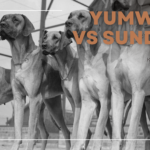Understanding the nutritional needs of pregnant dogs
As a dog owner, ensuring your furry companion receives the proper nutrition during pregnancy is of utmost importance. Pregnant dogs have unique dietary requirements. That must be met to support their well-being and the healthy development of their puppies. During this crucial time, their bodies undergo significant changes, and their nutritional demands increase substantially.
Providing the best dry dog food for pregnant dogs can make a significant difference in the overall health and comfort of your pregnant dog. It not only supports the growth and development of the puppies. But also aids in maintaining the mother’s energy levels and overall well-being. Choosing the best dry dog food for pregnant dogs is a critical decision that requires careful consideration of various factors.
In this comprehensive guide, we will explore the essential aspects of selecting the best dry dog food for pregnant dogs. From understanding their nutritional needs to identifying the top ingredients to look for. We’ll cover everything you need to know to make an informed choice.
Importance of choosing the right dry dog food for pregnant dogs
Selecting the right dry dog food during pregnancy is crucial for several reasons. First and foremost, it ensures that both the mother and her developing puppies receive the necessary nutrients for optimal growth and development. Pregnant dogs require higher levels of specific nutrients. Such as protein, calcium, and various vitamins and minerals, to support their increased metabolic demands.
Additionally, the right dry dog food can help prevent potential complications during pregnancy and delivery. Inadequate nutrition can lead to issues such as low birth weight, weak puppies, and even pregnancy-related complications for the mother. By providing a balanced and nutrient-dense diet, you can help mitigate these risks and promote a healthy pregnancy and delivery.
Furthermore, choosing the best dry dog food for pregnant dogs can have a lasting impact on the puppies’ health and development. The nutrients they receive during this critical stage can influence their growth, immune system, and overall well-being in the early stages of life.
Factors to consider when selecting dry dog food for pregnant dogs
When selecting the best dry dog food for your pregnant dog, there are several key factors to consider:
- Life Stage: Look for dry dog foods specifically formulated for pregnant or lactating dogs. These foods are designed to meet the increased nutritional demands of pregnancy and nursing.
- Nutrient Density: Pregnant dogs require higher levels of certain nutrients, such as protein, calcium, phosphorus, and various vitamins and minerals. Choose a dry dog food that is nutrient-dense and provides the appropriate levels of these essential nutrients.
- Calorie Content: During pregnancy, your dog’s caloric needs will increase to support the growth and development of the puppies. Look for a portion of dry dog food with a higher calorie density to ensure your dog receives adequate energy.
- Ingredient Quality: Pay close attention to the ingredient list and prioritize high-quality, easily digestible protein sources, such as meat, fish, or eggs. Avoid dry dog foods with excessive fillers, by-products, or artificial additives.
- Palatability: Pregnant dogs may experience changes in appetite or food preferences. Choose a dry dog food with a palatable and appealing flavor to encourage consistent food intake.
- Brand Reputation: Research reputable and trusted brands known for producing high-quality, well-balanced dry dog foods specifically formulated for pregnant and nursing dogs.
Top ingredients to look for in dry dog food for pregnant dogs
When evaluating dry dog food options for your pregnant dog, pay close attention to the ingredient list. Here are some of the top ingredients to look for:
- High-Quality Protein Sources: Pregnant dogs require increased protein intake to support the growth and development of the puppies, as well as their tissue maintenance. Look for dry dog foods that list high-quality protein sources, such as real meat, poultry, fish, or eggs, as the first or second ingredient.
- Omega-3 and Omega-6 Fatty Acids: These essential fatty acids play a crucial role in the development of the puppies’ nervous system and overall growth. Look for dry dog foods that contain sources of omega-3 and omega-6 fatty acids, such as fish oils, flaxseed, or chicken fat.
- Calcium and Phosphorus: These minerals are essential for the proper development of the puppies’ bones and teeth. Ensure the dry dog food you choose provides adequate levels of calcium and phosphorus, typically in a balanced ratio.
- Vitamins and Minerals: Pregnant dogs require higher levels of various vitamins and minerals, such as folic acid, iron, and zinc. Look for dry dog food that is fortified with these essential nutrients. To support both the mother and her developing puppies.
- Prebiotics and Probiotics: These beneficial ingredients can help support a healthy digestive system and immune function. Which is particularly important during pregnancy and nursing.
Common mistakes to avoid when choosing dry dog food for pregnant dogs
While selecting the best dry dog food for your pregnant dog. It’s essential to be aware of common mistakes that can compromise her health and the well-being of her puppies. Here are some pitfalls to avoid:
- Relying on Nutritional Supplements Alone: While supplements can be beneficial. They should never be used as a substitute for a complete and balanced diet. Always prioritize high-quality dry dog food specifically formulated for pregnant or nursing dogs.
- Feeding a Puppy or Adult Dog Food: Puppy and adult dog foods are not formulated to meet the increased nutritional demands of pregnancy and lactation. Stick to dry dog foods designed specifically for pregnant or nursing dogs.
- Overfeeding or Underfeeding: Pregnant dogs have unique caloric needs that change throughout the different stages of pregnancy. Consult with your veterinarian or follow the feeding guidelines provided by the dry dog food manufacturer to ensure proper portion sizes.
- Ignoring Ingredient Quality: While cost is a consideration, it’s essential to prioritize high-quality ingredients over lower-priced options. That may contain fillers, by-products, or artificial additives.
- Failing to Transition Gradually: Sudden dietary changes can cause digestive upset, particularly during pregnancy. If switching to a new dry food, gradually transition over a period of several days to allow your dog’s digestive system to adjust.
Recommended brands of dry dog food for pregnant dogs
When it comes to choosing the best dry dog food for your pregnant dog. Several reputable brands offer high-quality options specifically formulated for this life stage. Here are some recommended brands to consider:
- Purina Pro Plan: Purina Pro Plan offers a variety of dry dog food formulas designed for pregnant and nursing dogs. Including their Puppy Development and Bright Mind formulas.
- Hill’s Science Diet: Hill’s Science Diet has a dedicated line of dry dog foods for pregnant and nursing dogs. Such as their Puppy Healthy Development and Puppy Healthy Pregnancy formulas.
- Royal Canin: Royal Canin’s Puppy Starter Mother & Babydog dry dog food is formulated to meet the nutritional needs of pregnant and nursing dogs, as well as their puppies.
- Iams: Iams offers a Puppy Plus formula that is suitable for pregnant and nursing dogs. Providing increased levels of protein and other essential nutrients.
- Solid Gold: Solid Gold’s Wolf Cub Bison dry dog food is a high-protein, grain-free option. That can be suitable for pregnant and nursing dogs, particularly those with sensitive stomachs.
Remember, it’s always best to consult with your veterinarian or a pet nutritionist to determine the most appropriate dry dog food for your pregnant dog’s specific needs and breed.
Feeding guidelines for pregnant dogs
Proper feeding guidelines are crucial for ensuring your pregnant dog receives the right amount of nutrition throughout her pregnancy. Here are some general guidelines to follow:
- Early Pregnancy: During the first few weeks of pregnancy, you may not need to adjust your dog’s diet significantly. However, it’s essential to monitor her weight and body condition to ensure she’s not gaining or losing too much weight.
- Mid-Pregnancy: Around the fourth or fifth week of pregnancy. You may need to gradually increase your dog’s caloric intake by 10-25%. This will help support the growing puppies and prevent excessive weight loss in the mother.
- Late Pregnancy: In the final weeks of pregnancy, your dog’s caloric needs will increase significantly, often by 25-50%. Adjust her portion sizes accordingly and consider feeding her smaller, more frequent meals to accommodate her growing litter and prevent discomfort.
- Feeding Schedule: Establish a consistent feeding schedule and stick to it. Many experts recommend feeding pregnant dogs two to three smaller meals per day. Rather than one large meal to prevent digestive issues and ensure consistent nutrient intake.
- Monitoring Weight: Regularly weigh your pregnant dog and monitor her body condition. Adjust her caloric intake as needed to maintain a healthy weight and prevent excessive weight gain or loss.
- Fresh Water: Ensure your pregnant dog always has access to fresh, clean water. Increased water intake is essential during pregnancy to support the developing puppies and maintain proper hydration.
It’s important to note that these guidelines are general recommendations, and individual dogs may have varying nutritional needs based on their breed, size, and overall health. Always consult with your veterinarian for specific feeding recommendations tailored to your pregnant dog’s unique needs.
Additional supplements and considerations for pregnant dogs
While high-quality dry dog food formulated for pregnant dogs should provide most of the necessary nutrients. There may be instances where additional supplements or considerations are required. Here are some factors to keep in mind:
- Calcium and Phosphorus Supplements: In some cases, your veterinarian may recommend supplementing your pregnant dog’s diet with additional calcium and phosphorus. To support proper bone and tooth development in the puppies.
- Omega-3 Fatty Acid Supplements: If your chosen dry dog food does not provide sufficient levels of omega-3 fatty acids, your veterinarian may suggest adding a fish oil or other omega-3 supplement. To support the puppies’ brain and eye development.
- Probiotics and Digestive Enzymes: Pregnancy can sometimes cause digestive issues in dogs. Probiotics and digestive enzymes can help support a healthy gut and improve nutrient absorption.
- Exercise and Activity Levels: As your dog progresses through her pregnancy. Her exercise and activity levels may need to be adjusted. Consult with your veterinarian to develop an appropriate exercise plan that promotes her overall well-being without putting undue stress on her or the developing puppies.
- Environmental Considerations: Ensure your pregnant dog’s living environment is clean, comfortable, and free from potential hazards or sources of stress. Provide her with a quiet, secure space for whelping (giving birth) as her due date approaches.
- Veterinary Care: Regular check-ups with your veterinarian are essential throughout your dog’s pregnancy. They can monitor her health, provide guidance on nutrition and care, and address any potential concerns or complications that may arise.
Remember, any additional supplements or changes to your pregnant dog’s routine should be discussed with your veterinarian. To ensure they are safe and appropriate for her specific needs.
Transitioning to a post-pregnancy diet for dogs
Once your dog has given birth and is no longer nursing her puppies. It’s important to transition her back to regular adult dog food gradually. Here are some tips for making this transition:
- Gradual Transition: Sudden dietary changes can cause digestive upset, so it’s best to transition your dog back to her regular adult dog food over 5-7 days. Start by mixing a small portion of the new food with her current diet and gradually increase the ratio over time.
- Monitor Caloric Intake: After giving birth and nursing, your dog’s caloric needs will decrease. Adjust her portion sizes accordingly to prevent excessive weight gain and maintain a healthy body condition.
- Choose a High-Quality Adult Dog Food: Select a high-quality adult dog food that meets your dog’s nutritional needs. Based on her age, breed, and activity level. Consult with your veterinarian for recommendations.
- Hydration: Ensure your dog has access to plenty of fresh, clean water during this transition period to support proper hydration and nutrient absorption.
- Monitor for Changes: Keep an eye on your dog’s appetite, energy levels, and overall health during the transition. If you notice any concerning changes, consult with your veterinarian promptly.
Remember, the transition period after pregnancy and nursing can be challenging for your dog, both physically and emotionally. Be patient, provide a comfortable environment, and work closely with your veterinarian to ensure a smooth and healthy transition back to her regular diet.
Conclusion and final tips for choosing the best dry dog food for pregnant dogs
Choosing the best dry dog food for your pregnant dog is a crucial decision that can have a lasting impact on the health and well-being of both the mother and her puppies. By understanding the nutritional needs of pregnant dogs, and considering factors like ingredient quality, nutrient density, and life stage formulation, you can make an informed choice that supports a healthy pregnancy and delivery.
Here are some final tips to keep in mind:
Consult with your veterinarian
Your veterinarian is an invaluable resource when it comes to selecting the best dry dog food for your pregnant dog. They can provide personalized recommendations based on your dog’s breed, size, and overall health.
Read labels carefully:
Take the time to thoroughly read and understand the ingredient lists and nutritional information on dry dog food labels. Look for high-quality protein sources, essential fatty acids, and appropriate levels of vitamins and minerals.
Consider your dog’s preferences:
While nutrition is the top priority, it’s also important to choose a dry dog food that your pregnant dog finds palatable and appealing. This will encourage consistent food intake and ensure she receives the necessary nutrients.
Be prepared for changes:
Your pregnant dog’s nutritional needs and preferences may change throughout her pregnancy. Be prepared to adjust her diet and portion sizes as needed, and don’t hesitate to consult with your veterinarian if you have any concerns.
Provide a supportive environment:
In addition to proper nutrition, ensure your pregnant dog has a comfortable, stress-free environment and receives regular exercise and veterinary care throughout her pregnancy.
By following these guidelines and working closely with your veterinarian, you can provide your pregnant dog with the best possible nutrition and support for a healthy pregnancy and delivery.
If you’re expecting a litter of puppies and want to ensure your furry companion receives the best nutrition during this crucial time, consider booking a consultation with our team of pet nutritionists. We’ll work closely with you and your veterinarian to develop a customized feeding plan tailored to your pregnant dog’s specific needs. Our experts will guide you through the process of selecting the best dry dog food, recommend any necessary supplements, and provide ongoing support throughout your dog’s pregnancy and postpartum period. Contact us today to schedule your consultation and give your pregnant dog the best possible start on her journey to motherhood.


